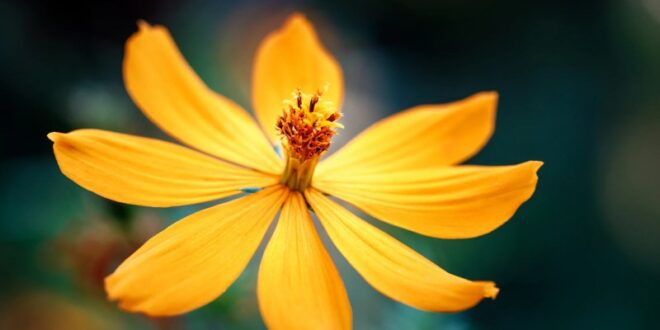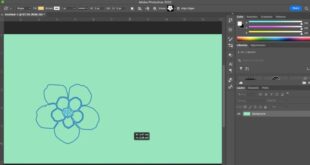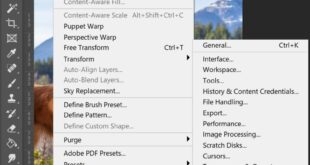How To Add A Bokeh Effect To Images In Photoshop For A Soft Focus – The creative use of lighting and bokeh remains popular among photographers and photo editors. Follow along and we’ll show you how to add bokeh to any photo, adjust the color, size and placement to make it eye-catching!
To start, you need a photo that has soft and colorful bokeh. Images with deep depth of field and light sources in the frame help convey the effect.
How To Add A Bokeh Effect To Images In Photoshop For A Soft Focus
You will need an image with bokeh effect on a dark background. There are many free image sites out there (use Unsplash). You can take yours too! Use several flashlights at home or street lights at night. Expose the photo for the light sources, then manually focus the camera. Don’t pay attention to the traffic lights!
Item: Soft Focus Photoshop Action By Sevenstyles
Once your images are ready, it’s time to move on to Photoshop. Start by overlaying the bokeh image on top of the main image from the layer stack. Set the Bokeh layer’s Blend Mode to Screen. Screen masking mode highlights the dark areas of a layer and preserves the light areas. You should notice that the dark background disappears, but the bokeh elements remain visible.
If unwanted areas of the bokeh layer are still visible, use a Levels adjustment layer to darken the opacity of that layer. This will help ensure that they are hidden when layers are set to Screen On. If you want to learn more about blend modes, check out How to Master Blend Modes in Photoshop.
By adding bokeh to the main image, we can now freely rotate it and make changes to color and composition. To change the color of the bokeh, use a Hue/Saturation adjustment layer. Attach adjustment layers to the bokeh layer so they don’t affect the entire image!
Use the Transform tool to transform and rotate the bokeh layer to enhance the composition. If you want to make more detailed adjustments, you can move, add, or remove bokeh. Use the Stamp Tool to select an area of bokeh (make sure the current layer is selected in the Stamp Tool Options), then paint where you want the new bokeh to appear! Want to take photos with stunning bokeh effects? You’ve come to the right place.
Golden Soft Focus Videos
I’ll also include plenty of bokeh examples so you know exactly what to expect from your images.
Areas of the image, especially very faded areas. Characteristic round shapes appear in the background of photographs.
Many professional photographers use this bokeh effect in their images; this helps to separate the main subject as well as add an artistic element to the overall photo. Portrait photographers often use creamy background bokeh to enhance their compositions, but you can also use bokeh in wildlife photography, product photography, food photography, and event photography.
Note that in general, the term “bokeh” refers to any background (or foreground) of an image. So you can get
Here’s How I Get The Bokeh Photo Effect Using My Smartphone
Bokeh (when out-of-focus areas are too detailed or appear blurry). I’ll explain what causes bad bokeh later in this article, but for now just know that not everything looks the same.
A low f-number, such as f/1.8 or f/2.8, will give you a wide aperture, while a high f-number, such as f/11 or f/16, will give you a narrow aperture. Ultimately, a wider aperture will create a better bokeh effect, since the wider the aperture, the more the lens will blur the background.
To create an image like this with high sharpness and stunning bokeh, you need a wide aperture like f/2.8.
Narrow aperture ensures clear foreground images; This is why landscape photographers almost always shoot at f/8 or faster. They all want to be noticed!
Step-by-step Tutorials For 4 Common Photoshop Overlays: Bokeh
An image where everyone is in focus (like this desert scene) is usually shot with a narrow aperture of f/8 or higher.
So when you see beautiful bokeh images, they usually come out at f/4 or wider (most are f/2.8, f/1.8, and even f/1.2).
Firstly, the higher the maximum aperture of the lens, the better the bokeh quality. As discussed above, if you can open your lens aperture wide, the bokeh will look great, whereas keeping the aperture closed will result in jittery bokeh that doesn’t complement the subject.
Apertures, while other lenses have hexagonal, heptagonal, or octagonal apertures. The shape of the aperture usually determines the shape of the bokeh: the rounder the aperture, the lighter the bokeh effect.
How To Create A Bokeh Effect
Do the math, you can find it in the specifications of each lens. More blades mean a rounder aperture, which in turn means better bokeh. Do you understand?)
Third, the longer the lens, the more it compresses the background and the background becomes blurry. with bokeh
So buy a long focal length (eg 200mm), a wide maximum aperture (eg f/2.8) and multiple apertures (9+) to get the best bokeh.
As you get closer to the subject, the bokeh effect in the background will increase, and as you move further away from the subject, the bokeh effect will disappear.
How To Create A Bokeh Effect
You can use a telephoto lens with a focal length of 300mm, 400mm or even 800mm. These lenses will bring your subject closer (without you having to change your position).
A telephoto lens is often handy, especially if you’re working with non-sketchy subjects (like birds and wildlife). But sometimes it helps to get up close and personal, especially if you want a more intimate perspective (I often recommend portrait photography).
He says you are taking a photo of a child in front of a tree. If you place them in front of a tree (with the bark touching their back), both the baby and the tree will be in focus and you’ll get very little bokeh to speak of. But if you take the child
In fact, increasing the distance from your subject to the background is one of the easiest ways to create better bokeh, especially if you don’t have a wide-angle lens. The further the subject is from the background, the better the result.
Realistic Soft Bokeh Firework Effect Photoshop Brushes
This often works as you’d expect: uniform elements (like a forest of green leaves) create very smooth bokeh, while jagged, closed elements (like people, cars and crowds of houses) create very distracting bokeh.
For example, if you position your image so that the background is lit, you can often get a stunning bokeh effect. Here’s how to shoot:
See how the light from the sky shines through the leaves in the background? This creates a distinct, rounded bokeh effect that many photographers love.
Of course, the best bokeh effect is obtained by making maximum use of each of the factors discussed above, but this is not always possible. Sometimes a narrow aperture is needed for some independent reason, or you need to get closer to the background, or you can’t get closer, etc. Here you need to consider and work on other bokeh factors. what you can control.
How To Create Bokeh Background Blur To A Photo In Photoshop
Have you ever wondered how camera sensor size affects bokeh? You are not alone! Many photographers, especially when choosing a new camera, want to know if there is a correlation between sensor size and beautiful bokeh in the background.
Let’s start with the basics. If you compare images from an APS-C camera and a full frame camera using 50mm lenses, you will notice that the photos look very different. With an APS-C camera, the image will look sharper and the full-frame image will be wider. This difference is not due to the characteristics of the sensor, but to the fact that a smaller sensor distributes the image more efficiently.
Technically, the images coming into the rear camera will be uniform, but once they are captured by the sensor, APS-C files are cropped. This means that the depth of field (area in focus) will be the same in both files, even if the APS-C image appears sharper. To achieve the same composition as a full-frame image, the APS-C camera needs to be moved forward a few feet.
So what? The larger the sensor size, the better the bokeh will look in such a composition. This is not a property inherent to larger sensors, but rather the result of an inherent limitation by smaller sensors. Understanding this will help you get the most out of your camera, regardless of sensor size.
10 Best Bokeh Effects For Photoshop [2020]
I’ve already explained the theory behind good bokeh, but in this section I want to tell you how to practically achieve the best bokeh in any situation.
Bokeh starts with choosing a lens. Look for a lens with a wide maximum aperture (ideally f/2.8 or wider, but f/4 will do).
If possible, choose a lens with a fast aperture (remember:
 Alveo Creative Blog Guiding users through techniques for enhancing images, retouching portraits, and mastering popular editing software
Alveo Creative Blog Guiding users through techniques for enhancing images, retouching portraits, and mastering popular editing software




